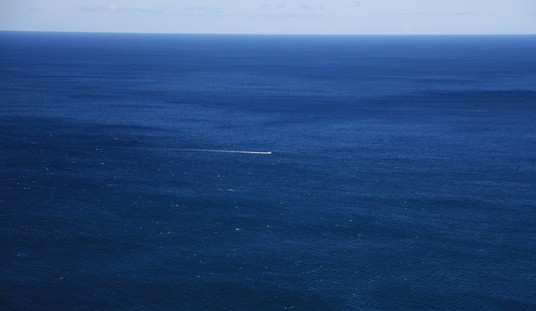September 12, 2009, 11:45pm.
I came to Rome to participate in an international conference on violence against women which was an Initiative of the Italian Presidency of the G8. The participants were smart, serious, principled, educated, eloquent, practical, courageous, energetic and beautiful; they wore vibrant colors, stunning jewelry, multi-colored headgear and hijab.
I presented my preliminary findings about honor killings in 28 countries and on five continents. Religious Muslim feminists (modern, professional, accomplished woman, not fundamentalists, not jihadists, some in hijab, some bare headed), confirmed that my work was “true” and “very important” and begged me to explain to them why so many western and academic feminists were so willing to betray women in developing, Muslim countries and Muslim immigrant communities by insisting on multi-cultural “relativism.”
Sweet vindication. (Yes, ‘tis true, three fundamentalists frowned a great deal and one took the mike, as if she were taking an oath, and solemnly declared: “Islam is innocent.”)
I will be writing about the Conference women when I return home. But first, I have to say goodbye to Rome, a city that I have been visiting for 49 years.
I am always sad to leave it but have never considered living here, renting or restoring a house in Tuscany, or learning to cook Italian-style. This does not mean I do not love Rome. I do; who doesn’t? She’s just not in the cards for me this time round.
But here’s one small snapshot of this city of ancient ruins ‘neath a splendid, 21st century sun.
Atop the well-touristed Spanish Steps, sits a small masterpiece. No, it is not a sculpture, a fountain, a painting, or a drawing. It is an exquisite, many-terraced restaurant named Ciampini.
Below, the crowds surge restlessly, ceaselessly, their cameras and children in tow. The restaurant lives at another pace, exists in another time. No one is hurried, and due to the mid-afternoon hour, most diners have already left; only a few linger on.
Ciampini has a garden, an indoor fountain filled with lazy turtles (!) sunning themselves, abundant, consoling greenery, lattice work, proper table linen, old-fashioned gas lights, and extraordinary views: One can see St Peters in the distance. And churches, rooftop gardens, a huge expanse of sky.
This little piece of paradise is blessedly silent. No music, not even classical music. No cellphones, no loud or raucous conversations. The waiters speak softly and are gracious, solicitous.
We choose a table on the highest terrace and discover that there are glass doors which the waiter slides shut “in order to provide the air-conditioning.”
Other than this unexpected and much appreciated accommodation, sitting here is a bit like sitting here fifty or a hundred years ago. Suddenly, we are caressed, enveloped by beauty, timelessness, seduced, won over by both the elements and civilization. We relax. Nature and Art, Roman-style, show us how much one can learn and feel merely by slowing down, sitting still, paying attention, taking it in.
And so, two very “busy” Americans actually have an unhurried meal.
We are the only diners. Three waiters in green jackets serve us as if we are royalty. It is like a dream. Or a movie with Joan Plowright or Maggie Smith that Americans love so much.
Sitting here is a bit like re-living every expatriate’s love affair with nineteenth and early twentieth century Italy. And so I become a character in an Ivory-Merchant film—no, in a novel by Henry James–no, maybe in a novella by Thomas Mann, and I, too, do not see how or why I should ever leave.
Arrivederci, Roma.









Join the conversation as a VIP Member